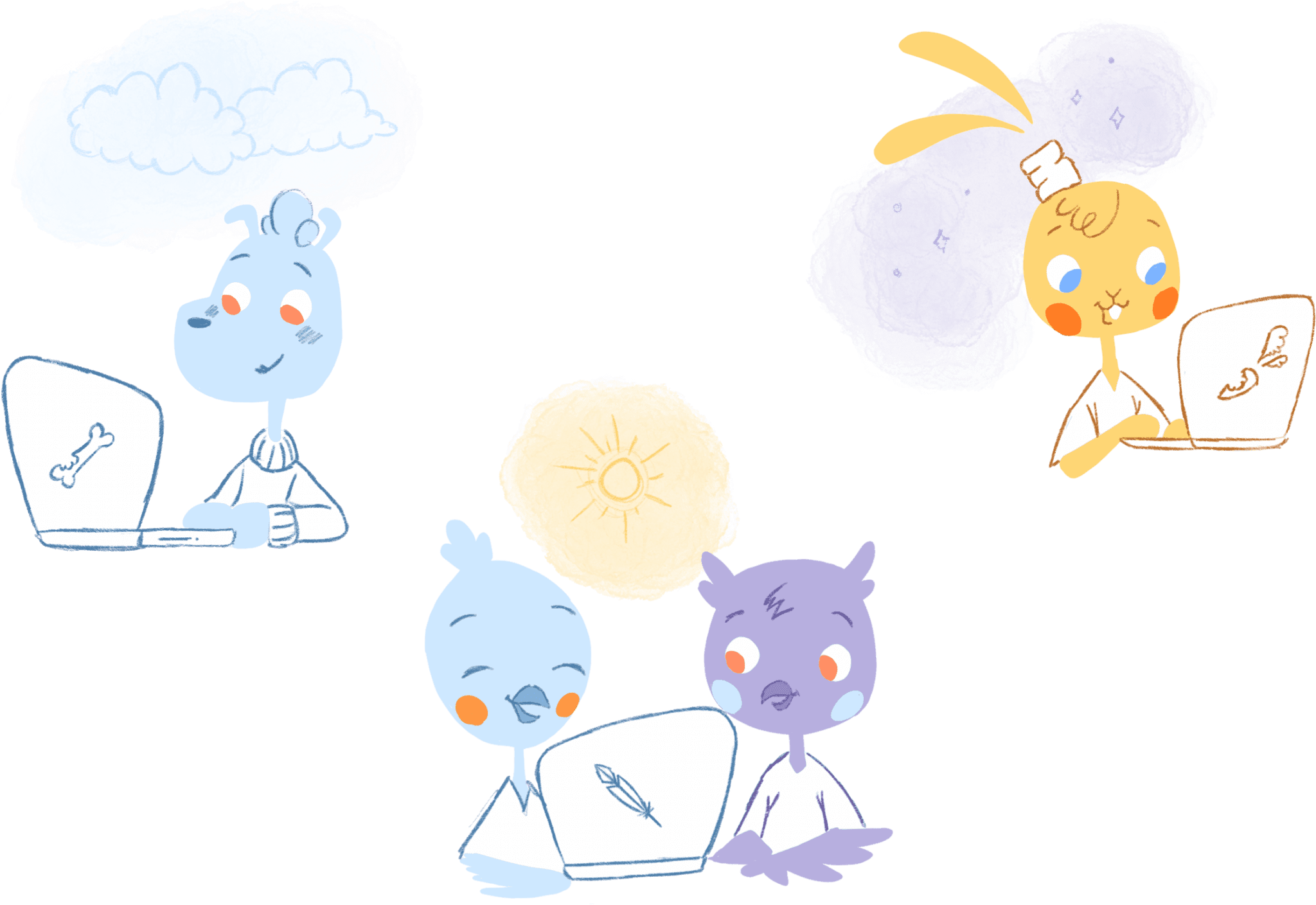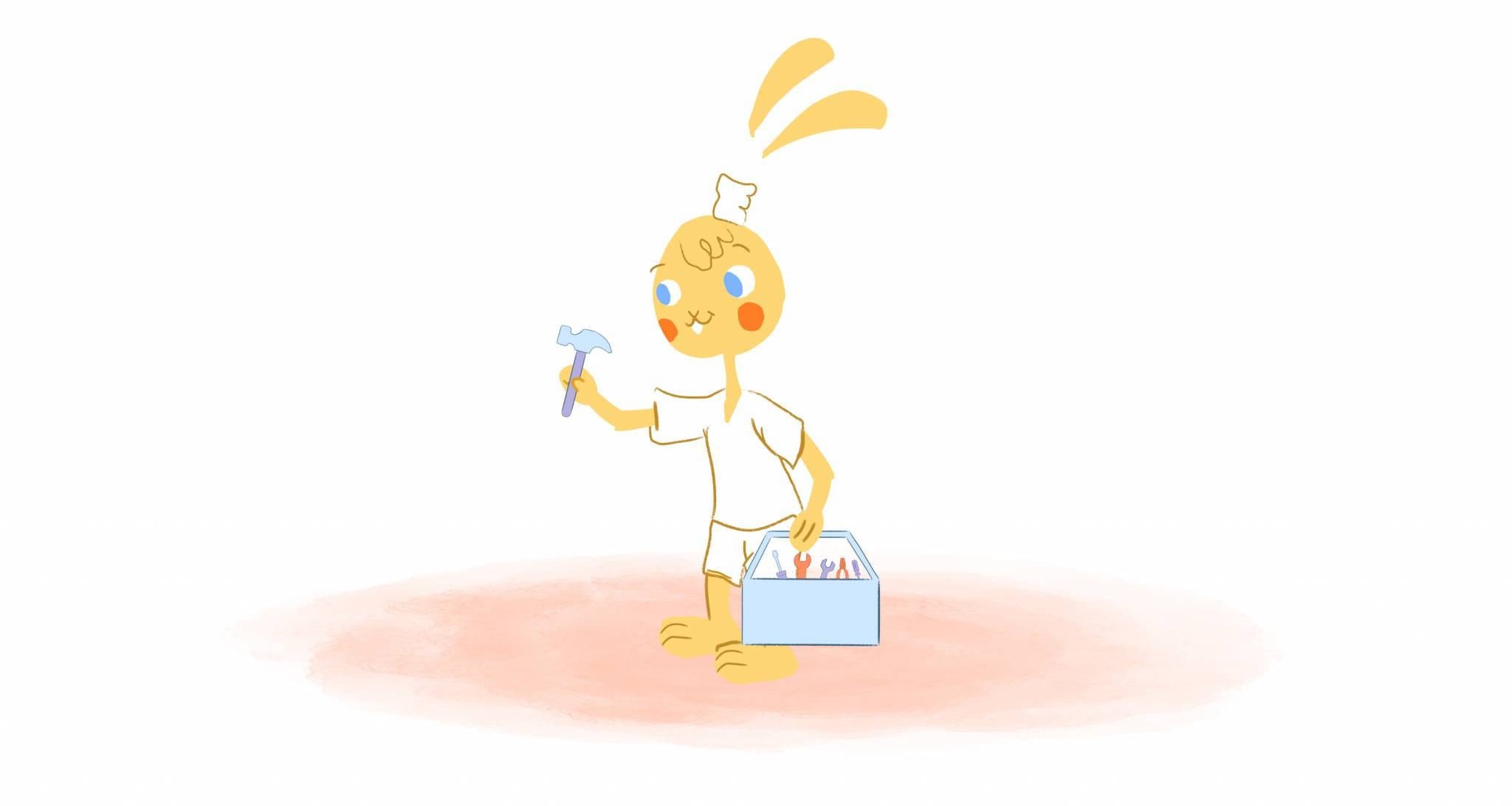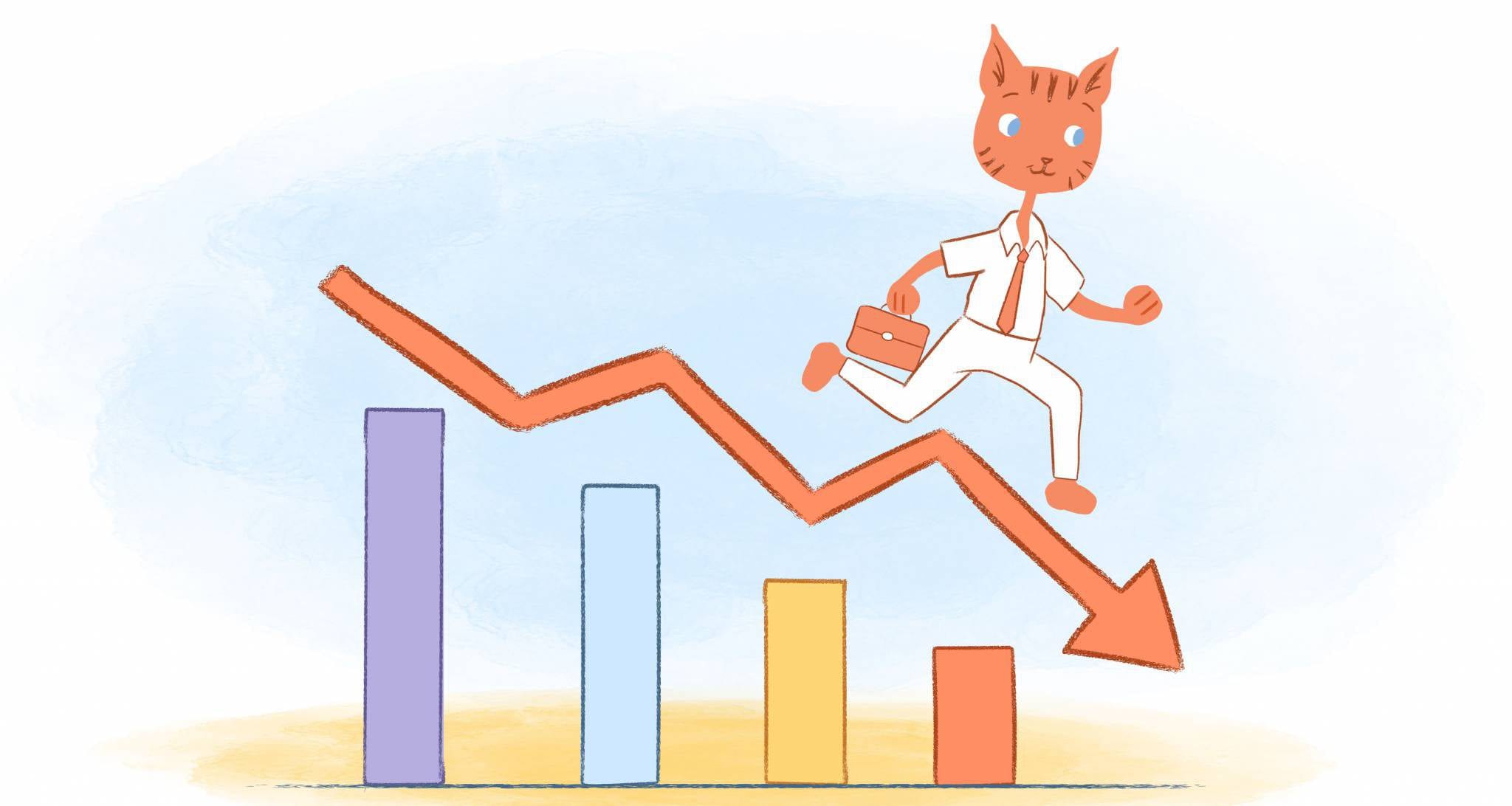

Subconsciously, we all believe that we could be more productive. Because of this, we are frequently searching for and trying out new apps, software, or strategies. Unfortunately, before giving tools and techniques a chance to work, we’re on to something else.
That’s a common problem for a majority of us. But why do we keep doing this to ourselves? Well, I’ve got 8 solid reasons, as well as why that can be good and bad.
1. The Akrasia Effect.
You’ve made the decision to try out something new. Whether if it’s a new system, tool, or hack, you make plans to improve your productivity game only not to follow through. What’s up with that?
As James Clear writes, this is a timeless problem. In fact, “ancient Greek philosophers like Socrates and Aristotle developed a word to describe this type of behavior: Akrasia.”
“Akrasia is the state of acting against your better judgment,” explains Clear. “It is when you do one thing even though you know you should do something else. Loosely translated, you could say that akrasia is procrastination or a lack of self-control,” he adds. “Akrasia is what prevents you from following through on what you set out to do.”
Why does this happen? It has something to do with “time inconsistency.” According to Clear, this “refers to the tendency of the human brain to value immediate rewards more highly than future rewards.”
So, let’s say that you’re taking a new productivity technique for a test drive; after a couple of days, though, you turn it back in because it hasn’t increased your output. Because you didn’t get immediate gratification, you aren’t going to stick with the technique.
To overcome Akrasia, Clear suggests:
- Design your future actions. Using a “commitment device” can help “automate your behavior beforehand rather than relying on willpower at the moment.”
- Reduce the friction of starting. Get into the habit of getting started should become a priority.
- Utilize implementation intentions. “An implementation intention is when you state your intention to implement a particular behavior at a specific time in the future,” says Clear. For example, “I will exercise for at least 30 minutes on [DATE] in [PLACE] at [TIME].”
2. Our brains dig novelty.
Did you know that “shiny object syndrome” is real? It’s true. Our brains are programmed to keep an eye out for the next big thing. And, we have evolution to thank for this.
“Homo sapiens were the only group of early hominids to emigrate over the entire world, which entailed great risk, so I think humans as a species are characterized by novelty- and intensity-seeking,” explained psychologist Marvin Zuckerman, Ph.D. In fact, it’s believed that early humans who took risks were more successful hunters. Consequently, they were rewarded with a survival advantage, and that has since been programmed into our DNA.
Research has also found that novelty aids in learning. Specifically, whenever we try something new, it activates the part of the brain that releases dopamine. That means it feels good whenever we seek out novelty.
3. The grass is always greener.
Since the launch of Calendar, I have spent an insurmountable amount of hours researching and trying out various productivity strategies. Obviously, I’ve been doing this to find the most effective methods for me and you. Nevertheless, I’ve also been on the quest to be considered one of the world’s most productive people.
Unfortunately, that ends up meaning that I compare myself to others. And, I constantly question what I could have done better.
Look, there’s nothing wrong with getting inspired by others. It can even be useful to reflect on where you can improve and grow. But, the grass is never greener on the other side.
Why is that a problem? Because it could put you on something called a hedonic treadmill.
“These delusions about the past and the future could be an adaptive part of the human psyche, with innocent self-deceptions actually enabling us to keep striving,” explains Frank T. McAndrew in an article for The Guardian. “If our past is great and our future can be even better, then we can work our way out of the unpleasant – or at least, mundane – present.”
“All of this tells us something about the fleeting nature of happiness,” adds McAndrew. “Emotion researchers have long known about something called the hedonic treadmill.”
“We work very hard to reach a goal, anticipating the happiness it will bring,” he states. “Unfortunately, after a brief fix, we quickly slide back to our baseline, ordinary way of being and start chasing the next thing we believe will almost certainly – and finally – make us happy.”
4. Anxiety is holding you back.
Regardless if it’s fear, uncertainty, or feeling overwhelmed, anxiety is a powerful force that can prevent you from moving forward. For example, you may be afraid to go skydiving because what if your chute doesn’t open? While valid, those types of thoughts are often irrational.
That can also be applied to whenever you’re trying something new out. It may not be a life or death situation like skydiving. But, it could cause you to make excuses so that you don’t have to experience being uncomfortable.
What’s more, you’re giving up control when it comes to areas like time management and productivity. Instead of wanting to do something, you feel obligated to get it done. As a result, this makes you even more anxious and stressed.
In a previous Calendar article, Deanna Ritchie suggests that you can reduce anxiety by:
- Identifying triggers so that you can find solutions.
- Taking care of your health and well-being.
- Learning how to self-soothe.
- Doing things that you enjoy.
- Taking frequent breaks throughout the day.
- Reassessing your to-do-lists.
I’d also add that you challenge your thoughts. So what if that new strategy you tried doesn’t’ work? Either go back to what worked or keep on experimenting until you find a method that clicks.
5. You’ve become a victim of complexity bias.
What exactly is complexity bias? An article for Farnam Street provides a clear definition of what it is. “It’s our tendency to look at something that is easy to understand, or look at it when we are in a state of confusion, and view it as having many parts that are difficult to understand.”
“As a result, when we need to solve a problem, we may ignore simple solutions—thinking ‘that will never work’—and instead favor complex ones,” writes the article’s author.
In other words, maybe you don’t need to color-code your calendar, bullet journal, or schedule every minute of your day. Instead, it could be something as simple as turning off your smartphone notifications.
6. You want to have your cake and eat it too.
While this isn’t always the case, there will be times when you need to give something up to be productive. For instance, you have an important meeting with investors first thing in the morning. To ensure that you’re on point, you need to spend the evening preparing and reviewing your presentation. You probably also want to lay out your clothes and look over your calendar so that you’re not rushing around in the AM.
However, at the last minute, your best friend calls you and informs you that they have an extra ticket for a concert. You would love to join them. But, if you went to the show, that means you can’t prep for the meeting.
The fact of the matter is that you will rarely be able to eat your cake and eat it too. So, be wary of any productivity tips that promise otherwise.
7. It don’t come easy.
There’s a great quote in the Necessary Endings book, which says, “Getting things done is hard, or more people would be doing it.” And that’s definitely true when it comes to productivity.
As I already said, sometimes your best course of action is the take the easy way. Of course, that’s not always going to cut it. So, you explore a different strategy only to find out that it was much more difficult or time-consuming than expected.
But, as Zig Zagler once said, “Difficult roads often lead to beautiful destinations.” In other words, don’t give up on a strategy just because it’s initially difficult.
8. You’re taking the advice of others to seriously.
Finally, maybe you’ve followed the advice of someone literally. Take, for example, the recommendation that waking up earlier will boost your productivity. That may be effective if you’re a morning bird-like, Tim Cook. However, what if you’re more of a night owl? Going against your circadian rhythms seems counterproductive.
There’s nothing wrong with using the advice from others as a starting point. The thing is, you don’t have to follow their advice to a T. Adjust their methods with what works best for you.
The pros and cons of changing productivity tools and systems.
Does constantly switching productivity systems always a bad thing. Not necessarily. According to Charles Duhigg, this can be effective if you’re struggling with being productive.
For starters, he explains that new methods grab your attention. “Almost exclusively, I found that the people who are most productive had decided to think about it deliberately,” he explains. “Habits are useful tools, but they can hinder as well as help,” he adds. “It’s about choosing to encourage habits, rather than following them blindly.”
“For six months, they’ll use a version of [David Allen’s Getting Things Done] with files and ticklers,” says Duhigg. “Then, they’ll decide to try a new system, maybe using color-coded tabs and inboxes. Then they’ll find another new system,” he says. “Constantly cycling through systems forces you to think about your own productivity.”
Additionally, Duhigg says that continuous improvement is a requirement for higher productivity. In fact, he found that when you feel that you’re productive enough, you’re less likely to change. However, those known for kicking it into high gear are always thinking and testing various methods.
Other reasons why you should change your systems or tools? Well, I’ve got 5 of them for you.
- It’s not working for you. In other words, you’re running late and missing deadlines.
- You’re going over your budget. Productivity tools and techniques should be saving you time and money. If that’s the opposite, it’s time to shake things up.
- It’s not your cup of tea. Ideally, you should be using something that’s not only effective but also that you don’t mind using it.
- The times they are a-changing. Maybe when you worked with a team, tools like Trello, Asana, or Slack were useful. Not that you’re following slowly; you probably don’t need to rely on them.
- You’re in a slump. Doing the same thing day in and out can get redundant. Eventually, we’ll get so bored that you’ll fall into a rut. Change can invigorate and motivate you when you’re dragging.
Why you shouldn’t replace your productivity tools and systems.
If you’re looking to make a change to hop onto a trend or just doing for the sake of change, then that can backfire. Some other reasons why you shouldn’t shake the boat are:
- The learning curve. It takes time and trial and error to get used to a new tool or method. If that’s in short supply, then you might want to wait until you have more availability to learn it.
- It’s an excuse to avoid work. Sometimes we want to play with our new toy to avoid important or difficult work. Reserve playtime for after you tackle your priorities.
- You didn’t give previous tools or systems a fair shake. As I already mentioned, it takes time to get used to using a new tool or system. It will take even longer to see results. Just remember what Axl Rose once belted out, “Just a little patience, yeah.”
- You believe that it’s going to fix all of your problems. I hate to be the bearer of bad news here. But, if you’re struggling with time management or productivity, a new solution isn’t going to magically whisk away all of your problems. Get to the root cause and find a tool or system that will help you solve the issue.
What’s the answer?
I’m all for experimenting with new productivity tools and systems. However, it should be for the right reason. Determine what your goals are and where you’re struggling. From there, do a little research to find solutions to help you reach your goals and strengthen your weakness.
Most importantly, don’t be so restless. Give your existing platforms time to work. If you feel that’s time to make a switch, you also need to give the new solutions time to develop.











Angela Ruth
My name is Angela Ruth. I aim to help you learn how Calendar can help you manage your time, boost your productivity, and spend your days working on things that matter, both personally and professionally. Here's to improving all your calendars and becoming the person you are destined to become!